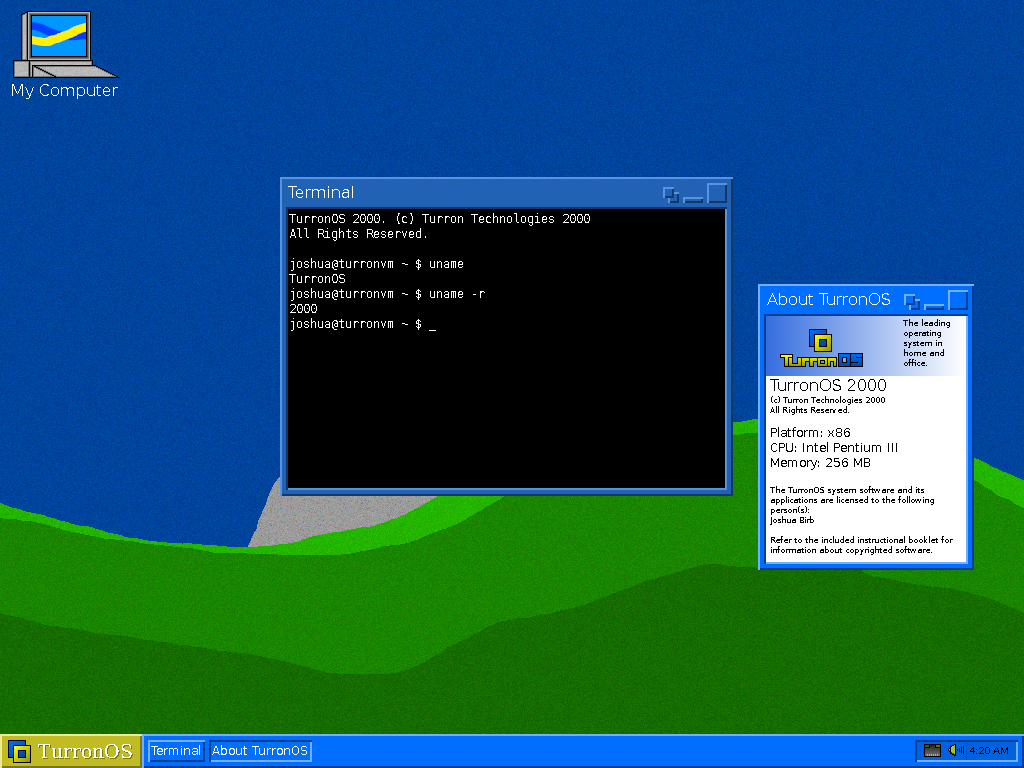TurronOS

Note: This page was partially rewritten in order to change the lore surrounding TurronOS. This notice will be removed soon.
TurronOS is an operating system developed by Turron Technologies for x86, x86_64, PowerPC, and ARM platforms. It is known for its inclusion on the TurronTech PC. It bears similarity to Linux or Unix (despite being neither), and takes UI design inspiration from BeOS, Windows, and OS/2.
There are desktop, server, and mobile versions of TurronOS.
Out of the box, it includes (but is not limited to) a terminal emulator, a file manager, an image editor and text editor, a web browser, a media player, a desktop hypervisor, and a full office suite. It contains compatibility tools to run programs written for Linux, DOS and Windows.
TurronOS is popular in the home and office computing markets.
Development
TurronOS' versioning scheme uses release years for version numbers. It is comparable to Windows Server versioning or Ubuntu versioning.
TurronOS was first introduced in 1995 as a competitor to Windows 95 and the emerging OSBlue platform. When designing TurronOS, TurronTech wanted to "combine the ease of Windows with the power and efficiency of a Unix-like operating system."
Y2K and TurronOS 2000
Although TurronOS has been "Y2K-compliant" since the beginning of its development; in 1999, a considerable amount of TurronOS users questioned whether their computers would continue to function come the new millenium. The version pictured on this page is TurronOS 2000, released in 2000 both to introduce a new user-interface style and to ease concern about TurronOS' ability to function post-Y2K. TurronOS 2000 and late versions of TurronOS 1999 were marketed as "fully Y2K-ready."
